|
When it comes to HVAC repairs, taking matters into your own hands can be a rewarding and cost-effective approach to prepare your air conditioning unit for summer. However, it's crucial to proceed cautiously and ensure you have the right knowledge and tools to avoid costly mistakes. This guide will explore the top five dos and don'ts of DIY HVAC repairs, providing valuable insights and tips to tackle common issues effectively and safely.
The 5 Dos of DIY HVAC Repairs No. 1 Do Regular MaintenanceProper maintenance is key to extending the lifespan of your HVAC system and preventing major breakdowns. Make it a habit to regularly clean or replace air filters, remove debris from outdoor units, and inspect the ductwork for leaks or blockages. Keeping your system in good shape can improve its efficiency and save on energy costs. Example: Checking and cleaning your air filters every three months ensures optimal airflow, prevents dust buildup, and reduces strain on the HVAC system. This simple task can significantly enhance its performance. Moreover, this will help you determine when you need an AC tune-up, for example. No. 2 Do Familiarize Yourself with the SystemBefore attempting any DIY repairs, take the time to understand your system. Read the manufacturer's manual, identify the key components, and learn about their functions. This knowledge will empower you to troubleshoot minor issues and make informed decisions about when to call in a professional. Example: Understanding the basics, such as identifying the condenser unit, thermostat, and air handler, will allow you to pinpoint potential problems, like faulty wiring or refrigerant leaks, and take appropriate action. No. 3 Do Practice Safety PrecautionsWorking with HVAC systems involves electrical components, refrigerants, and moving parts, which can pose risks if mishandled. Prioritize safety by turning off the power to the unit, wearing protective gear, and following proper procedures when dealing with electrical connections or refrigerant lines. Example: Always wear gloves and safety glasses when handling refrigerant, and remember to dispose of any old refrigerant following local regulations properly. That will protect both your safety and the environment. No. 4 Do Invest in Quality ToolsTo carry out DIY HVAC repairs effectively, you'll need the right tools for the job. Invest in quality equipment such as a multimeter, wrenches, screwdrivers, and a vacuum pump. Having the proper tools ensures you can work efficiently and reduces the risk of damaging your system during the repair process. Example: A multimeter allows you to accurately test electrical connections and diagnose potential issues. It's a valuable tool for any HVAC repair enthusiast. No. 5 Do Know When to Seek Professional HelpWhile DIY repairs can save you money, there are limits to what you can handle on your own. Recognize your skill level and when a repair job is beyond your capabilities. A licensed HVAC professional should handle complex issues, refrigerant leaks, or problems with the electrical wiring. Moreover, to prevent major issues, you should schedule seasonal HVAC tune-ups conducted by professionals. Example: If you notice a significant drop in cooling or heating performance despite your efforts, it's best to contact a professional. They have the expertise to diagnose and fix more intricate problems safely. The 5 Don'ts of DIY HVAC Repairs No. 1 Don't Attempt Repairs Without Proper KnowledgeOne of the most common mistakes homeowners make is diving into DIY repairs without adequate knowledge or experience. Guesswork and trial-and-error can lead to further damage, costing you more in the long run. If you're unsure, it's best to leave it to the experts. Example: Suppose you notice that your air conditioning unit is not cooling as effectively as it used to. Without proper knowledge, you might open up the unit and start tinkering with the components, hoping to identify and fix the problem. However, you’ll likely unintentionally damage the compressor or mishandle the electrical connections. As a result, the repair becomes more complex, requiring professional intervention and incurring additional expenses. No. 2 Don't Neglect Safety ProceduresNeglecting safety precautions can lead to accidents, injuries, or even fatalities. Never work on live electrical connections without turning off the power supply, and avoid handling refrigerants without proper training and protective gear. No. 3 Don't Forget to Disconnect the PowerBefore starting any HVAC repair, disconnect the power supply to the unit. This step eliminates the risk of electric shock and protects you and the equipment from potential damage. No. 4 Don't Overlook Permits and CodesCertain HVAC repairs may require permits or adherence to local building codes. Failure to comply with these regulations can result in fines and even void your warranty. Therefore, the Bravo Moving California experts advise you to check with the local authorities or consult a professional if you're moving into a new home and don’t know the local protocols, for example. Example: When replacing an HVAC unit, obtaining the required permits and ensuring compliance with building codes is essential. It guarantees that the installation is safe and meets the necessary standards. No. 5 Don't Use Improper Replacement PartsWhen replacing components of your HVAC system, it's crucial to use the correct parts. Using incompatible or subpar replacements can affect the system's performance and potentially lead to further damage. Always consult the manufacturer's specifications or seek professional advice. Example: Using the wrong size air filter or opting for a low-quality replacement can harm your HVAC system. The incorrect filter size may impede the airflow, causing strain on the blower motor and reducing its efficiency. Ultimately, this can result in decreased cooling or heating performance, higher energy consumption, and potentially even damage to the system over time. ConclusionDIY HVAC repairs can be a rewarding and cost-effective way to address minor issues. However, it's crucial to follow the dos and avoid don'ts to ensure safety, prevent further damage, and maximize the efficiency of your system. Regular maintenance, proper safety measures, and knowing your limitations are key to successful DIY repairs. Remember, when in doubt, it's always wise to consult with a qualified HVAC professional to ensure the job is done correctly and safely.
5 Comments
If you want your AC to do its job properly, you must take proper care of it! To this end, let’s review the importance of getting an AC tune-up.
Maximizing cooling efficiency When your air conditioning system operates at its peak performance, it cools your home effectively while minimizing energy consumption. During a tune-up, a trained technician fine-tunes various components, such as the coils and fans, ensuring they are clean and functioning optimally. That enhances cooling efficiency and extends the lifespan of your AC unit. Regular maintenance prevents common issues like refrigerant leaks or airflow restrictions hindering cooling efficiency. If your AC continues to underperform, this can be one of the signs it's time for a replacement. By investing in regular tune-ups, you can ensure that your AC system keeps you comfortable during scorching summers while saving energy costs. Prolonging the lifespan of your AC One crucial reason to prioritize AC tune-ups is to extend the lifespan of your equipment. Regular maintenance, as advised by the storage experts from SF Moving, plays a significant role in ensuring the longevity of your air conditioning system. During a tune-up, trained technicians thoroughly inspect and clean various components, identifying and addressing potential issues before they worsen. Additionally, routine tune-ups help maintain proper lubrication, reduce strain on the system, and optimize overall performance. Taking care of your AC unit by scheduling regular tune-ups saves you money and provides peace of mind knowing that your equipment will continue to cool your home effectively for years to come. Don't underestimate the importance of getting an AC tune-up for equipment lifespan, and consult professionals for regular tune-ups today! Enhancing indoor air quality through tune-ups When your air conditioning system is properly maintained, it helps filter out dust, allergens, and other pollutants that can circulate in your home. During a tune-up, trained technicians clean the filters and coils, ensuring they are free from debris and contaminants. By keeping these components clean, your AC system can effectively remove airborne particles, creating a healthier living environment. Notably, this is essential for individuals with respiratory conditions or allergies. Breathing cleaner air can alleviate symptoms and improve overall well-being. Thus, you should prioritize AC tune-ups to enhance the air you breathe and promote a healthier home for you and your loved ones. Identifying and fixing big and small problems with your AC Regular AC tune-ups are vital in identifying and addressing potential issues before they escalate into major problems. Trained technicians are skilled at diagnosing common AC problems and can quickly pinpoint the root cause of any performance issues. From low Freon levels to clogged filters or malfunctioning components, they have the expertise to identify and fix these issues efficiently. One of the common problems that can be identified during a tune-up is low Freon levels in your AC system, which can hinder its cooling capacity. By detecting and resolving such issues early on, you can prevent further damage to your AC unit and avoid costly repairs or replacements. Maintain your warranties An important thing to note is that proper AC maintenance is also necessary for upholding manufacturer warranties. Most AC manufacturers require regular maintenance to keep the warranty valid. Adhering to the manufacturer's maintenance guidelines, such as scheduling routine tune-ups, ensures that your warranty coverage remains intact. Neglecting maintenance can void the warranty, leaving you responsible for costly repairs or replacements. Prioritize AC maintenance, including, of course, regular tune-ups performed by trained professionals, to avoid such situations. That protects your investment and provides peace of mind knowing that you have the support and coverage from the manufacturer in case any unexpected issues arise. Improving the energy efficiency of your AC When your air conditioning system is well-maintained, it operates optimally, reducing energy consumption. During a tune-up, trained technicians clean coils, check refrigerant levels and inspect the blower motor. Keeping these parts clean and well-functioning allows your AC unit to cool your home more efficiently, minimizing energy waste. Therefore, you can benefit from lower utility bills. Investing in regular AC tune-ups is a proactive step towards sustainable living and energy conservation. So, don't overlook the importance of improving energy efficiency through regular maintenance. Ensuring comfort and convenience When your air conditioning system is regularly maintained, it provides consistent and reliable cooling throughout your living space. A well-tuned AC unit can effectively regulate indoor temperature, keeping you comfortable even during scorching summers. Technicians can restore your AC's performance and enhance your overall comfort by addressing issues such as poor airflow, uneven cooling, or noisy operation during a tune-up. That is especially important for creating a conducive environment for relaxation, productivity, and quality sleep. Don't let a malfunctioning AC disrupt your daily activities or compromise your well-being. Instead, stay cool, relaxed, and enjoy the benefits of a well-functioning air conditioning system year-round. How AC tune-ups contribute to environmental responsibility As mentioned, a well-maintained air conditioning system operates more efficiently. However, this means that you are also reducing energy waste and lowering carbon emissions! Therefore, you contribute to a more sustainable living environment by investing in regular tune-ups. A properly functioning AC unit consumes less energy, reducing strain on power grids and decreasing your overall carbon footprint. Furthermore, AC tune-ups help prevent refrigerant leaks, which can harm the ozone layer. So, by proactively maintaining your AC system, you play a part in protecting the environment. Small steps like scheduling regular tune-ups have a big impact, aligning with the global efforts to combat climate change and promote sustainability. By caring for your AC unit, you contribute to a greener future for the next generations. Regularly scheduling AC tune-ups Now that you know the importance of getting an AC tune-up, we know you’ll take care of your AC properly. After all, it has far too many benefits for anyone to ignore! While many ignore the dangers of low Freon levels in your AC system, this is not the best move. They can be quite serious, so we’ve compiled a guide to explain them more closely!
Freon and its actual role in AC systems Understanding Freon's role in your AC system is crucial for maintaining optimal cooling performance. Of course, it also helps with the dangers of low Freon levels in your AC system. Freon, also known as refrigerant, is a chemical compound that absorbs heat from the indoor air and releases it outside. Thus resulting in a cool and comfortable environment. It circulates through the AC system, undergoing a continuous cycle of compression and expansion. However, serious Freon problems can arise over time, indicating that your AC unit needs replacement. These problems include refrigerant leaks, which don’t only affect the cooling efficiency. They also pose environmental concerns due to the harmful effects of Freon on the ozone layer. Suppose you notice refrigerant leaks or experience a significant decline in cooling performance. In that case, it's a clear indication that it's time to consider replacing your AC unit with a more efficient and eco-friendly model. All the signs and symptoms of low Freon levels You need to closely monitor the signs and symptoms of low Freon levels in your AC system. One clear indication is reduced cooling capacity, where your AC fails to cool the space effectively. Another sign is the formation of ice buildup on the evaporator coils, hindering proper airflow. Increased energy consumption is another red flag, as your AC works harder to compensate for the low Freon levels. Pay attention to strange noises or unusual smells emanating from your AC. They could indicate a Freon problem. You must address the issue quickly if you notice any of these signs. Ignoring low Freon levels can lead to further damage, decreased efficiency, and even potential health risks. Don't hesitate to contact a professional technician to diagnose and resolve the problem to ensure your AC system operates optimally and avoid the dangers of low Freon levels in your AC system. The potential dangers of ignoring low Freon levels Ignoring low Freon levels in your AC system can lead to a host of dangers that you should not underestimate. One of the primary risks is damage to the compressor, the heart of your cooling system, which can be expensive to repair or replace. Additionally, low Freon levels can result in poor indoor air quality. This is because the system fails to remove humidity and contaminants from the air effectively. This can exacerbate allergies and respiratory issues. Furthermore, Freon leaks can pose health risks. In extreme cases, exposure to the refrigerant can cause dizziness, headaches, and even asphyxiation. Another alarming danger is the potential fire hazard that low Freon levels can present. After all, the refrigerant is flammable under certain conditions. To ensure your safety, addressing low Freon levels promptly by seeking professional assistance and not ignoring the warning signs is essential. The actual causes of low Freon levels Low Freon levels in your AC system can be attributed to various causes that should be addressed promptly. One common cause is refrigerant leaks. They can occur due to worn-out seals, cracks in refrigerant lines, or faulty connections. Improper installation or maintenance can also lead to low Freon levels over time. If the system wasn't charged with the correct amount of refrigerant during installation or if regular maintenance and inspections were neglected, it can result in a gradual decline in Freon levels. Additionally, normal wear and tear can cause small leaks or gradual loss of refrigerant over the years. It's important to address these causes as soon as possible to prevent further damage to your AC system and ensure optimal cooling performance. The consequences of DIY Freon recharge Attempting a DIY Freon recharge for your AC system can have severe consequences that should not be taken lightly:
The importance of professional AC maintenance and repair Professional maintenance and repair of your AC system are of utmost importance to ensure its longevity and efficient performance. Experts, like those from State to State Move, recommend regular maintenance of AC systems in commercial buildings to avoid costly breakdowns and ensure optimal functionality. Professional technicians have the expertise and knowledge to identify potential issues early on and provide necessary repairs or adjustments. They can also conduct thorough inspections, clean essential components, and optimize the system for peak performance. By relying on professionals, you know that your AC system is in capable hands and that they will address any maintenance or repair needs promptly and effectively. This not only helps extend the lifespan of your system but also ensures a comfortable environment for occupants and potentially reduces energy consumption. Tips for maintaining optimal Freon levels Maintaining optimal Freon levels in your AC system is crucial for avoiding the dangers of low Freon levels in your AC system. In order to achieve this, the following steps are rather vital:
Battling the dangers of low Freon levels in your AC system With how omnipresent ACs are in our homes, it’s important to be aware of the dangers of low Freon levels in your AC system. Otherwise, they can sneak up on you and cause serious damage to your health and property!  Even the most durable air conditioning systems can eventually break down. Regular HVAC maintenance, such as an annual AC tune-up, could help your system survive as long as possible while ensuring efficiency. Unfortunately, you'll end up having to get a new one. What are the signs that your AC unit is ready for replacement? How to recognize these symptoms? However, investing in a new air conditioner can be challenging. HVAC system repairs are often among the most expensive you will face as a homeowner. People usually wait until the last minute to replace their HVAC system. Also, they decide to replace only when the repairs are no longer profitable. Many of them do not pay attention to the energy efficiency of their outdated devices. In this article, we deal with the signs indicating when it's time to retire and replace old appliances with new ones. What is the lifespan of your AC system? The average lifespan of a central AC system is between 12 and 15 years, while some can even last up to 20 years. Of course, there are several variables to consider, such as the regularity of maintenance, the location of the unit, the intensity of its use, and the manufacturer’s reputation. Older HVAC systems can still be regularly maintained. Thanks to technical standards, aging systems can still be easily maintained. Also, finding a qualified professional for regular maintenance and repairs is possible even for older systems due to the wide availability of replacement parts and servicing for these systems. However, there are times when repairing an outdated air conditioner is not worth the cost and should be replaced immediately. And here are the signs that your AC unit is ready for replacement:
Increased energy costs Rising energy prices are not to blame if you've noticed that your central air conditioner is costing extra to run. Costs can add up when your HVAC system declines in efficiency over the years. As it ages, an air conditioner can lose as much as nine percent of its efficiency for every point in its Seasonal Energy Efficiency Ratio (SEER). What does this mean for you? Unfortunately, the fees on your account will increase. With the longer time required to reach target temperatures, the system will put more effort into reaching those temperatures. It means more time spent working, money spent on bills and maintenance, etc.  The fact that it isn't cooling properly anymore is perhaps the most telling symptom that your air conditioner is in its final days. It shouldn't take more than a few minutes after turning on the thermostat for cold air to blow through the vents. If it doesn't, or if the AC goes on but blasts warm air, it indicates it's having trouble keeping up. If the system is struggling to process your commands However, not every HVAC system failure needs a new installation. A clogged duct is another possible cause. A professional can repair your air conditioner if it is not producing any cool air. However, it may be time for an update if your air conditioner is on and looks to be functioning normally but is no longer effectively cooling your house. If you did not notice these signs in time and find yourself with a problem in the middle of the season, then there is a problem. For example, in the middle of summer, your AC breaks down, and you are in a climate where the summers are as hot as in California. Maybe you'll think about moving somewhere where you might not even need AC. Pros can handle these tasks when this situation occurs, making your move faster and smoother. Increased air humidity in the home and even the appearance of mold and mildewThe primary function of your air conditioner is to dehumidify the indoor environment. An evaporator coil can accomplish this by recirculating heated air that has been pulled from your home and cooled. Your system can have a moisture leak that it removes from the air. It is typical for the air conditioner in your house to release some water. However, as your air conditioner ages and loses efficiency, or if problems arise with the evaporator coil, the unit will not be able to collect as much moisture from the air in your house. Moisture levels in your home may rise, and you can notice condensation on windows or moisture around vents and pipes. Additionally, you can see mold or mildew growing in your apartment or house. That could be one of the most obvious signs that your AC unit is ready for replacement. Any unusual sound or unpleasant smell from your system indicates a problemNo squeaking, rattling, creaking, or screeching sounds should come from a well-maintained HVAC unit. Your air conditioner's useful life may be coming to an end if it makes strange or loud sounds while running. Similarly, if you turn on your central valve and notice a peculiar stench emanating from the vents, it may be time to replace your air conditioner. If your air conditioner is functioning properly, the vents’ air shouldn’t have musty or stale odors. There should never be any stale or smoky odors present. In the heat of summer, you depend on your air conditioner to keep your house at a pleasant temperature, so the expense of repairing a damaged system is understandable. But before the hot season starts, check your system; if necessary, it may be replaced with a brand-new one. Don't wait for the obvious signs that the AC unit is ready for replacementYou certainly don't want to find yourself on thin ice when the heating or cooling season comes and your HVAC system is at the end of its life. Pay close attention to these obvious symptoms of your HVAC system that is about to retire. There should not be any strange sounds from the system. There must also be no increased humidity in the room. Follow these tips to understand signs that the AC unit is ready for replacement and be prepared to manage on time. If you want your AC to work when you need it most, it requires a bit of maintenance throughout the year. So, let's take a closer look at the ways to prepare your air conditioning unit for the summer.
Start by replacing your AC's filterThe first step to prepare your air conditioning unit for the summer should always be to replace its filter. The filter accumulates a lot of dirt, dust, and harmful particles over weeks or months if you are not using your AC. Even a frequently used AC collects them. But at a slower pace that lets you stretch out their use a bit longer. You want to do this mainly to improve your AC's performance, but another strong motivator exists. If you have anyone who suffers from allergies in your family, an old AC filter with lots of contaminants is a guaranteed way to trigger them. This means that keeping your AC filters fresh is also a perfect way to improve air quality in your home effectively. Clean the condenser coils and finsThe condenser coils and fins of your AC condenser unit are an essential part of it. It lets the AC maintain normal performance levels and helps it release or collect heat, depending on the time of year. However, the fact that the condenser unit has to be located outside means it is exposed to many diverse conditions. Things such as dirt, dust, and even smaller debris can get caught on the coils and fins. If this happens, the functionality of the condenser obviously suffers, and the AC's ability to regulate your home's temperature plummets. You can buy a protective covering for the condenser if it doesn't come with your unit. But it's still an essential part of preparing your air conditioning unit for the summer to clean it. Check if the thermostat on your AC unit worksA broken thermostat is one of the most annoying things that can go wrong with your AC unit. In fact, a broken thermostat makes it impossible to use an AC effectively. So taking care of that is an essential requirement to prepare your air conditioning unit for the summer. And the good news is that checking whether your thermostat works is simple. Just turn on your AC and try to adjust the temperature. Keep in mind, too, that you can choose to replace your regular thermostat with a smart one. The experts from Easy Move KW point out that this is particularly useful for any rooms you plan to use to store temperature-sensitive items. This includes rooms such as a pantry since an AC can very effectively contribute to keeping your less perishable foods safe. Giving the coolant lines an inspectionCoolant lines connect that unit to your AC. They can be tubes or pipes covered by foam coolant line insulation that helps them maintain the temperature of the air they transport. It is crucial to spot any sign of fraying or flaking of this insulation since the temperature loss becomes significant without it. At the same time, any damage to the coolant lines themselves requires a replacement. Since they are covered by the insulation and trying to remove it can easily damage them, this is one of the reasons why it's vital to schedule seasonal HVAC tune-ups and checkups. Professionals know what they are doing and can avoid accidentally damaging your coolant lines or their insulation. The ductwork checkIf you have any exposed ductwork in your home, it is imperative to check it carefully. Any problems with it can very quickly translate into issues with your AC. Namely, holes or any breaks in the ductwork's sealing quickly cause your AC's efficiency to plummet. In turn, keeping your home at the desired temperature takes a lot more power and makes your electricity bills shoot up. This is true even if you get an excellent HVAC with great power efficiency. Do not ruin your setup through negligence! Cleaning and inspecting air ventsAir vents can cause similar but slightly less noticeable problems than your ductwork. Namely, if your air vents are clogged, the climate-controlled air cannot circulate properly. In other words, parts of your home likely won't benefit from your AC at all. At the same time, a very important reason to pay attention to their cleanliness is your family's health. Air vents can also serve as a source of allergens. And the circulating of air ensures that they spread all over your home. The potential problems with your drain lineThe final thing you need to do to prepare your air conditioning unit for the summer is to check your drain line. The drain line is part of your AC that diverts the condensation formed by it working away from your home. So, if it develops a clog, the water can start dripping from parts of your AC it shouldn't be in. This is both annoying in the sense that it causes contained flooding and dangerous due to water potentially mixing with electricity. A way to clean the drain is by rinsing it with a cup of bleach quickly, followed by a gallon of clean water. A warning when trying to prepare your air conditioning unit for the summerEven though you learned how to prepare your air conditioning unit for the summer, remember that no matter what you are doing, you have one priority: staying safe! Before you even consider doing any maintenance or cleaning on your AC unit or its components, check if their power is on. Disconnect them if you can. If this is impossible, temporarily turn off the part of your home that feeds power to it. You should never risk your health and safety by carelessly working on an appliance or device which is still connected to the power grid. Can you count on your air conditioner to function reliably and efficiently this spring and summer? You can't be sure if you did not service your HVAC system. However, if you have experts do an annual AC tune-up on your system, you won't have to worry about a thing. In fact, every heating or cooling system will operate better, use less energy, and last longer if you service it on a regular basis. If you schedule routine tune-ups, a professional technician can conduct a thorough check of all the system's components. This includes checking the coils, fans, air filters, drains, and refrigerant lines, to identify potential issues and fix them before they become major problems. That being said, today, we are going to discuss why it’s important to schedule seasonal HVAC tune-ups.
Increased EfficiencyRegular seasonal HVAC tune-ups are important for keeping an efficient and cost-effective heating and cooling system. By having seasonal tune-ups, you can identify areas or components of the system that may need to be repaired or replaced before they cause major problems. The benefits of an efficient HVAC system are multiple, from improved air quality in your home to longer-lasting components. Then added is the financial benefit you get from seasonal maintenance, including higher energy efficiency, which helps reduce energy bills. By reducing how hard a system needs to work, seasonal tune-ups provide year-round savings for both homes and businesses. Enhanced ComfortSeasonal HVAC tune-ups can be highly beneficial for providing a more comfortable home and work environment. Keeping on top of seasonal maintenance can help to ensure the system is running smoothly, reducing the chances of any breakdowns and eliminating effects such as insufficient heating or cooling. Regular service visits also check indoor air quality, which is important for reducing allergens and improving the overall air quality within the home. Furthermore, seasonal HVAC tune-ups help to create temperature consistency, meaning no more hot spots in your home or office, resulting in a better overall atmosphere. This is one of the primary reasons why people looking to buy a new home are beginning to include HVAC inspections in home inspections these days. Increased LifespanBelieve it or not, seasonal tune-ups can help lengthen the life of your HVAC system. This is because regular maintenance can slow down the wear and tear on any mechanical appliance. Seasonal tune-ups involve inspecting and servicing various parts to lessen the likelihood of failure and the cost of replacing those parts, as well as running the machine for an extended period of time due to excessive energy use. Plus, seasonal tune-ups may identify minor issues before they become major problems and require costly repairs or replacements. According to professionals at USA Moving Reviews, more and more individuals relocating around the United States seek houses with well-maintained HVAC systems. Thus, regular HVAC maintenance may be viewed as an investment that will pay off if and when you decide to sell your home. Warranty Extension Components in HVAC systems are not cheap. When manufacturers cancel your warranty because of improper upkeep, you pay more money than you otherwise would. That said, preventative HVAC maintenance is the best way to get the most out of your system's warranty. Before approving a warranty repair claim, most manufacturers require documentation of yearly maintenance. This is because, like any other mechanical system, your HVAC unit is becoming antiquated as it ages. But, as we've mentioned, if you keep up with the upkeep, you will not have any issues for years to come. Cost SavingsOne of the key reasons to schedule seasonal HVAC tune-ups is the cost savings they can provide. By addressing minor issues before they become major problems, you can avoid costly repairs down the road. Regular maintenance is much more cost-effective than waiting until something breaks and then having to pay for emergency repairs or replacements. Proactive maintenance can also save money on energy bills. When your HVAC system runs efficiently, it uses less energy to maintain your desired temperature, resulting in lower utility bills. Additionally, routine tune-ups can help you budget for long-term HVAC costs. Rather than dealing with unexpected expenses, you can plan for regular maintenance and factor it into your budget. By investing in regular maintenance, you'll ultimately save money and protect your HVAC system, ensuring that it operates efficiently for years to come. Reduces Carbon FootprintSeasonal HVAC tune-ups offer more than just financial savings; they also provide environmental benefits. By keeping your system in good working order, you are reducing your carbon footprint and doing your part to protect the environment. A well-maintained HVAC system requires less energy to maintain a comfortable temperature in your home. This results in lower energy usage and fewer greenhouse gas emissions. Ultimately, regular seasonal tune-ups of your HVAC system can help keep the environment clean for years. Routine maintenance also allows you to investigate greener HVAC system alternatives. A reliable HVAC specialist can explain the advantages of using natural gas or renewable energy sources, as well as advise on energy-saving equipment like programmable thermostats. These solutions may help you conserve energy, lower your carbon footprint, and save money on utility costs. ConclusionNow that you know why it's important to schedule seasonal HVAC tune-ups, you can take proactive steps to protect your investment in heating and cooling. By prioritizing regular maintenance, you can ensure that your system operates at peak efficiency, saving you money on energy bills and avoiding costly repairs down the road. To get the most out of your HVAC system and to ensure that it operates optimally for years to come, it's essential to work with a trusted and experienced HVAC professional. Doing so lets you enjoy a comfortable home and peace of mind, knowing that your HVAC system is well-maintained and provides the efficiency and performance you need. Indoor air pollution is a growing concern for many homeowners, as we spend the majority of our time indoors. Poor air quality can lead to various health problems, including headaches, allergies, and respiratory issues. The good news is that there are simple and effective ways to improve the air quality in your home. By taking a proactive approach and implementing a few key strategies, you can ensure that the air you breathe is clean, fresh, and healthy. This article will discuss some of the most effective ways to improve air quality in your home. Whether you're looking to reduce allergens, improve your overall health, or just enjoy a cleaner, fresher indoor environment, these tips and recommendations can help.
Change your HVAC filters Regular maintenance is key to optimum performance of your HVAC system. Not only does this ensure your system is running efficiently and safe, but it also includes a change of your air filters. Depending on the type of filter you have chosen, these should be changed at least once per month, or up to every 3 to 6 months. Understanding the Importance of Indoor Air Quality Indoor air quality is a critical factor in our overall health and well-being. According to the Environmental Protection Agency (EPA), the air inside our homes can be up to five times more polluted than the air outside. This is due to various factors, including poor ventilation, harsh chemicals and pollutants, and the accumulation of allergens and dust. Furthermore, understanding the importance of indoor air quality is the first step in creating a healthy indoor environment. As mentioned above, poor air quality can lead to a range of health problems, including headaches, fatigue, and respiratory issues, particularly in sensitive individuals such as children, the elderly, and those with pre-existing health conditions. Moreover, by paying attention to the air quality in your home and taking steps to improve it, you can reduce your risk of these health problems. And ensure that you and your family breathe clean fresh air. Identifying Sources of Indoor Air Pollution Identifying the sources of indoor air pollution is an essential step in improving the air quality in your home. Believe it or not, if you don't have a proper HVAC system, it can also cause pollution in your home. Some typical sources of indoor air pollution include:
By understanding where the pollution is coming from, you can take steps to reduce or eliminate it. For example, you can switch to natural cleaning products, choose low-emission furnishings, and ensure your home is adequately ventilated to reduce the levels of indoor air pollution. Additionally, by regularly cleaning and dusting your home, you can help to remove pollutants that have already accumulated. In turn, this will improve air quality in your home tremendously. Store your cleaning supplies appropriately Proper storage of household chemicals and pollutants is crucial in enhancing indoor air quality. With suitable storage options, you can safeguard your home against the detrimental effects of indoor air pollution. Consider options such as airtight containers and locked cabinets to ensure that these substances do not contribute to the air quality of your home. If you find the right unit for you, you can take a significant step towards breathing cleaner, fresher air inside your home. By finding a suitable unit for you, you can take another step towards a cleaner and healthier home. Using Air Purifiers and Ventilation Systems Ventilator systems and air filtration systems are practical tools for improving indoor air quality. Air purifiers remove pollutants and allergens from the air, while ventilation systems help circulate and exchange indoor and outdoor air. When selecting an air purifier, it's important to choose one with a high-efficiency particulate air (HEPA) filter, as this filter can remove even the smallest particles from the air. Installing a ventilation system, such as a whole-house ventilation system or a simple exhaust fan, can also help to reduce indoor air pollution. By using air purifiers and ventilation systems in conjunction with other measures, such as proper storage of household chemicals and regular cleaning, you can create a healthier indoor environment for yourself and your family. Choosing Low-Emission Home Products and Furnishings The products and furnishings you choose for your home can make a significant impact when it comes to improving indoor air quality. Look for products that are labeled as low-emission, as these emit fewer pollutants into the air. This includes items such as flooring, paints, and furniture. Opting for natural cleaning products, rather than those with harsh chemicals, can also help to reduce indoor air pollution. When choosing furnishings, such as carpets and upholstery, look for those made from natural fibers. And avoid those treated with flame retardants and other chemicals. By being mindful of the products you bring into your home, you can help reduce indoor air pollution levels and create a cleaner, healthier living environment. Scheduling Regular HVAC Maintenance Regular HVAC maintenance is crucial for ensuring good indoor air quality. Your heating, ventilation, and air conditioning system can harbor allergens and pollutants. So have it professionally serviced regularly. During maintenance, your HVAC technician can inspect and clean your system, check for leaks, and make necessary repairs. This not only helps to improve indoor air quality but can also improve the efficiency of your system and extend its lifespan. Consider scheduling HVAC maintenance at least once a year or more often if you have allergies or other health concerns. By investing in regular maintenance, you can create a healthier indoor environment and enjoy peace of mind knowing your system is running at its best. Conclusion In conclusion, there are many effective ways to improve air quality in your home. These include understanding the sources of indoor air pollution, choosing low-emission products and furnishings, using air purifiers and ventilation systems, and scheduling regular HVAC maintenance. By taking a comprehensive approach to improving indoor air quality, you can create a cleaner and healthier living environment for you and your family. The furnace is a vital part of your home during the colder months. Good system upkeep ensures maximum heat output with little power waste and risk of hazardous emissions. However, if you wait too long to schedule maintenance, your furnace might become more expensive to run. This will negatively impact indoor air quality or even break down entirely when you need it most. It's possible that you'll have to pay for the entire cost of repairs if a technician determines that your system failed because you neglected to perform routine maintenance. In this blog, we will go over the essential tips for performing basic furnace maintenance.
Swap out your filterAmong the simplest ways to preserve the efficiency of your heating or air conditioning system is to replace the filter regularly. If your air filter is dirty, less air will be able to flow through your heating system, making your blower units work harder than they need to. Furthermore, filters play a significant role in removing allergens, dust, mold, and other particulates from the air in your house. Your old, dirty filter will no longer be able to do its job. Think about upgrading to better filters when it's time to replace your current ones. Good filters may make a big difference in the air quality, especially if you have pets or live in an area with plenty of airborne pollutants like dust, pollen, or smoke. Take a look at the pilot lightIt's important to check the furnace's pilot light often since it may tell you a lot about the appliance's health. The pilot light shows whether or not the gas mixture is correct. The color blue is the standard for a pilot light. A flame of any color, especially one that is yellow, is undesirable. A high rate of production of carbon monoxide might be indicated. You might avoid a lot of hassle by just keeping an eye on this pilot light. Put your senses to useIt's likely that you'll be able to pass your furnace every day without even noticing it's there. Inspect the entire system, but especially in the fall, to check if anything is incorrect. The first thing you should do if you smell rotten eggs is to call your utility company. The presence of gas in the air might indicate a dangerous leak in your home. The second step is to make sure the venting pipe is placed correctly. Verify that all tubes have been fastened properly. Listen for any strange noises or anything out of the ordinary. Check the thermostat settingsHave you tried altering the room's temperature but still feel unpleasant? If that's the case, you could have an issue with your thermostat, especially if it's been used for a while. Most likely, you need to replace your thermostat because it has broken. If the thermostat doesn't seem to be operating correctly, get it checked and replaced. The drainage tube needs to be cleanedFurnaces that burn natural gas or propane give off minute amounts of water vapor as they heat. Some of it escapes as steam, but the rest flows down the power exhaust manifold into a drip pan that the air conditioner may also use. The flame sensor will turn the system off if water enters the manifold because the drainage tube is blocked. You can do essential furnace maintenance by cleaning the drainage tube. Furthermore, you should clean the drain pipe like you clean your furniture. To keep the drain tube and drain pipe clean, detach them from the manifold and blow them with compressed air. You can pour a cup of white vinegar into the drainage tube and pipe to help prevent filmy collection. Make sure your ducts are in working orderDuring the warmer months, pests are looking for a cozy nesting spot, and your ductwork and surrounding insulation provide the perfect environment. Your ductwork may deteriorate over time due to attic or crawlspace conditions. The efficiency of the ducts in your home, which carry air conditioning and heating, might suffer as a result. Additionally, if you've had service employees in your crawl space or attic recently, they may have messed with your ductwork. Uneven temperatures and airflow throughout your home are warning signs of potential duct system failure. Therefore, it is necessary to inspect the ductwork once a year for signs of new tears or breaches, deterioration, insulation peeling away, or ducting collapse. That is unless the ducting in your home is difficult to reach. However, if you aren't sure where your duct system is located, having an HVAC expert inspect and clean your ducts is best. Recognizing your system and the upkeep requirementsAlthough most American homes have furnaces powered by natural gas or electricity, many more heating options are available. These include propane, geothermal, heat pumps, and radiant floor heating. Learn about the heating system that supplies your home and how it should be maintained. Knowing this will help in performing basic furnace maintenance easier. While radiant floor heating may not require any upkeep, other standard heating systems, including those that use natural gas, should be checked and serviced regularly to ensure their continued efficiency and reliability. Be alert for any soundsIf a sound that is out of the ordinary comes from the furnace might be an indication of a problem. It's easy to check for problems and ensure the furnace works correctly by listening to the noises it makes. Although this won't solve every problem, it should help reduce the number of issues that go unreported. If you've waited for too long, don't despairPerforming furnace maintenance is usually not on top of the list of things to check once fall rolls in. Especially if you live in a relatively mild climate that will get colder only when the days start getting shorter. However, even if you have to move while the repairs on your furnace take place, it's not the end of the world. Just remember not to rush anything; pack only what you need the most, and if you have to move some furniture, remember to do it the right way. You'll be back in your home before you know it. In conclusionPerforming basic furnace maintenance isn't complicated. It's also easy on the wallet to keep a gas furnace running smoothly. Saving money and maybe never having to buy another gas furnace are also possible outcomes. Stop cleaning your gas furnace because it's dirty. If your furnace breaks down, you don't have to worry about hiring a maintenance specialist. Try to maintain a cautious approach. Follow the maintenance tips above to get the most out of your gas furnace. As the pollution level in California and all around the world steadily increases, so does the importance of filtration for indoor air quality. That said, protection from outside pollution is not the only benefit indoor air filtration systems offer. Installing an air filtration system in your home is the best way to protect yourself and your loved ones from inhaling bacteria, fungi, and other harmful particles. This is why today we will cover all of the benefits of having an air filtration system if you are considering installing one in your home or office.
1. Relieve Some of Your Hay Fever SymptomsWith winter just around the corner, most people aren't thinking about spring or hay fever. That being said, if you want to avoid all of the problems that will come after the snow starts to melt, installing an air filtration system is a great idea. Additionally, air filtration can help with other airborne allergies, such as pet dander, seasonal pollen, and dust mites. Even a simple air purifier in the home is quite good at removing allergens from the air. Using one can help alleviate allergy symptoms such as itchy, watery eyes and a stuffy nose. 2. Improve the Longevity of Your Air ConditionerA long-term advantage of installing an air purification system is the help it gives your air conditioner. High pollution levels in the indoor environment can put a significant load on your air conditioner or furnace. When dust and other pollutants accumulate in the filters, fans, and other components of your air conditioner, their efficiency decreases. However, if you use an air purifier, it will be able to reduce the extra strain that contaminants cause on your air conditioner. As a result, you'll be able to enjoy the benefits of your HVAC system for a more extended period of time. 3. Have a More Pleasant Home EnvironmentWhether you're a smoker or a pet owner, there are certain odors that will not go away, no matter how much effort you put into eliminating them. However, one of the most unexpected advantages of installing an air filter in your home is that it may help eliminate odorous substances floating around. Cigarette smoke, for example, is one of the most unpleasant odors you can encounter in your home. Filtration for indoor air quality, on the other hand, can remove nearly 100% of the particles that cause that odor. 4. Relieve the Discomfort of AsthmaNumerous studies have linked poor indoor air quality to more severe asthma attacks. As a result, people with asthma may experience a worsening of their symptoms or even a full-blown asthma attack if the indoor air quality is inadequate. Furthermore, recent research has shown that using an air purifier may significantly lessen the severity of asthma attacks in kids. In general, if you install an air purifier in your home or office, you'll make your home a more comfortable place for everyone who lives there. 5. Have a Better Night’s RestThe quality of the air we breathe has a significant effect on the quality of our sleep, according to research conducted at the University of Denmark. It's just as crucial as the ambient temperature and background noise. In fact, there is strong evidence linking adequate sleep to improved health outcomes. This includes a lower risk of cardiovascular disease and weight gain. Therefore, if you are thinking of replacing your HVAC system soon, you should think about installing one with a purification or filtration system. 6. Improve Your Overall HealthThe Environmental Protection Agency (EPA) claims that poor indoor air quality can lead to a wide variety of serious health problems. This includes respiratory issues, heart disease, and even cancer. Long-term exposure to airborne pollutants without filtration may have devastating effects on health. That is why you should look at a high-quality air purifier as a long-term investment in the health of you and your family. This is especially important given that the World Health Organization has found that children and the elderly are more vulnerable to pollution. 7. Less Dust in Your HomeHave you ever run your finger over a surface in your home only to discover it was covered with dust? The answer is most likely yes. In fact, most people consider dust buildup as an inevitability. They let it settle until they can't bare to look at it anymore, and then they do a bit of dusting. That being said, what if we told you that doesn't have to be the case? What if we told you that installing an air filtration system can help keep dust out of your home? As their name suggests, air purifiers can clean the air by drawing in contaminated particles and trapping them in a filtration system. This will result in less dust buildup throughout your house. Installing an Air Filtration System Is Quick and EasyMost people do not have an air purification or filtration system in their homes because they believe installing one takes a lot of time, effort, and money. However, nothing could be further from the truth. Installing a filtration system for indoor air quality will be quick if you work with the right professionals. In fact, even if you are making a last-minute move to California and working with movers who can handle it in no time, professionals will be able to install one in your new home before you even arrive. ConclusionIf you are looking to make an investment in your health and that of your family, you need to understand the importance of filtration for indoor air quality. This is why you need to start looking into the various air filtration options available to you. Some of them are good, and some of them are not. You need to figure out which is which before investing. All in all, we hope that we have been helpful. We also hope we were able to inspire you to make an investment that is going to make your life better in almost every way. Buying a new home is usually quite an exciting process. You review numerous homes and try to figure out which one will suit your lifestyle best. And amongst all that excitement, it is not uncommon for people to forgo several essential steps. In this article, we will go over the facts of why you must get an HVAC inspection when buying a home.
Why you should consider getting an HVAC inspection when buying a homeFor most people, buying a home is the biggest purchase of their lives. As such, they tend to give it due diligence and perform ample research into real estate trends, housing factors, and neighborhood history. Unfortunately, no home is perfect. And people usually have to make compromises and put aside more minor issues to find a home they deem worthy. Let us set things straight and note that an HVAC system is not a tiny issue, nor is it something you should ignore. A subpar HVAC system should be a significant concern for a potential home purchase, if not a complete deal breaker. Neglecting HVAC issues could be a considerable expense, not to mention a danger to your health and safety. The seller may not be aware of any HVAC issuesWhen someone sells a home, they must fill out the "sellers disclosure report." There they will outline all the defects and problems they are aware of. But, if the seller didn't care much about HVAC maintenance, they are likely unaware of any issues. This, unfortunately, can cause you to buy a home with a poor HVAC system. The seller didn't technically lie to you or deceive you. They weren't aware of any issues, so it wasn't even a lie by omission. And if you don't perform an HVAC inspection, you likely won't be aware either, at least for the time being. A standard inspection doesn't include HVACArguably, the most common reason people skip HVAC inspection when buying a home is that they think a standard home inspection will cover it; however, it will not. The home inspector might turn on the HVAC to ensure it works. But imagine if a car mechanic did the same with your car before you bought it. A simple "work or doesn't work" check hardly covers the complexity and the potential issues you might face with an HVAC system. The HVAC system is the most expensive applianceA complete HVAC system replacement can cost between $5000 and $10000. As such, it will likely be your most expensive appliance. If you have money to burn, then sure - go ahead and purchase a home without an HVAC inspection. But, if you value your money, you'd be wise to inspect it to the best of your capabilities. Like most other complex systems, the sooner you notice an issue, the cheaper and easier it is to fix. Therefore, even if there are only minor issues with the HVAC, you'd be wise to try and catch them as soon as possible. Consider the energy billHalf of your energy bill will go to heating and cooling. Therefore, it certainly does pay off to have an efficient HVAC system, especially in the long run. Unfortunately, you cannot know if your HVAC system is efficient without inspecting it. All systems can function seemingly well and still have underlying issues that hamper their performance. Therefore, regardless of whether or not your HVAC does the job, you still need to ensure that it is problem free. HVAC inspection tipsA full-fledged HVAC inspection is something only a professional can perform. There are certain aspects you can check on your own while visiting a new home. If it turns out that you need to have the HVAC system repaired, the best time would be after the purchase and before you move in. The house will be empty, and the repairs won't bother you. Remember that if you are planning a long-distance move to California, your best course of action is to hire professional movers and let pros assist you. Most moving companies will also offer additional services such as storage. This can prove to be extremely valuable if you have major HVAC system problems and need to schedule unplanned repairs. Determine the age of the systemThe average HVAC lifespan is around 15 years. If the system is older, you should consider replacing it or at least schedule major repairs. Most HVAC providers will advise you to schedule an inspection every 10 years. If the seller is unwilling to replace or upgrade their HVAC, you should try to negotiate and lower their asking price for the property. Check duct workLeaky ductwork is a sign of an inefficient HVAC system. This is because every bit of air that leaks out necessitates your HVAC to work harder. So, make sure that you check for gaps, torn sections, loose connections, etc. You can hire professionals to tackle duct issues. But it would be best if you made a note of them as soon as possible. Take note of the comfort levelA well-running HVAC system will make a home feel comfortable. So, once you go around to visit it, make sure to take note of the comfort level. If there is any notable stuffiness, sudden changes in temperature, or drafts, know that they can be a cause for concern. ConclusionBy now, you should have a reasonably good idea of why it is necessary to get an HVAC inspection when buying a home. From the financial standpoint alone, consider that it will be your most expensive appliance and your most significant energy bill contributor. Therefore, ensuring that your HVAC is in good condition only makes sense. If you put your faith in the seller or the standard home inspection, know that you are putting yourself at needless risk. The seller may not be aware of any issues. And the home inspection most likely won't cover your HVAC with due care. A licensed professional is the only person who deserves trust with your HVAC inspection when buying a home. The tips in this article should help determine whether an HVAC system is suspicious. And even if everything seems ok, we would still advise you to hire a professional for a thorough inspection. |
AuthorAfter years in the HVAC industry working for both small and large companies, we knew we could offer customers our experience, good prices, and excellent service. So, we started our own HVAC company. Archives
July 2023
Categories |
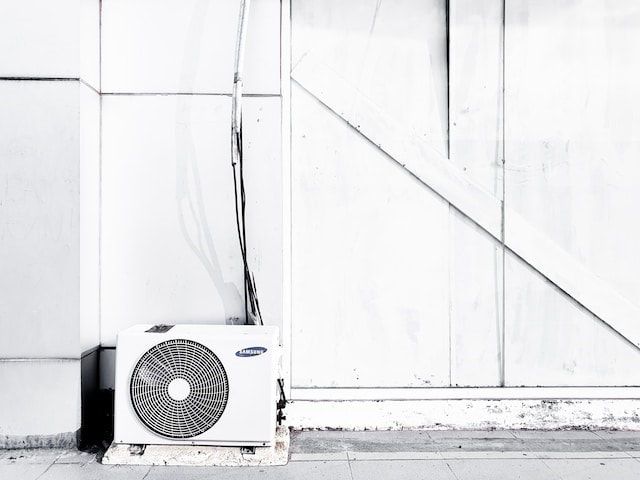
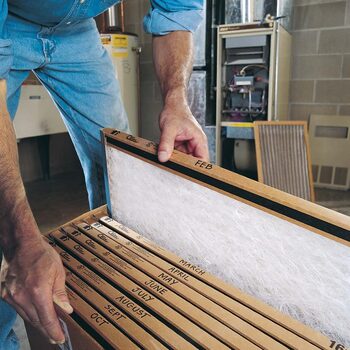
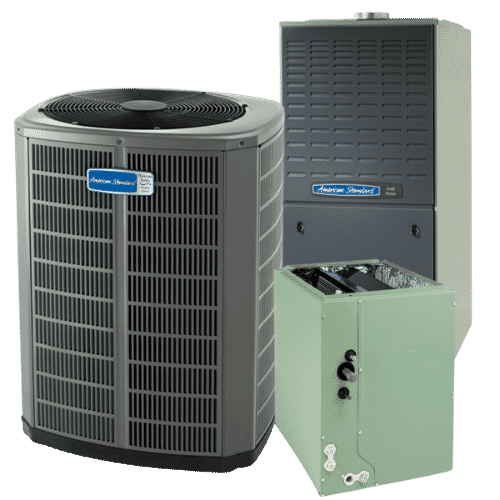
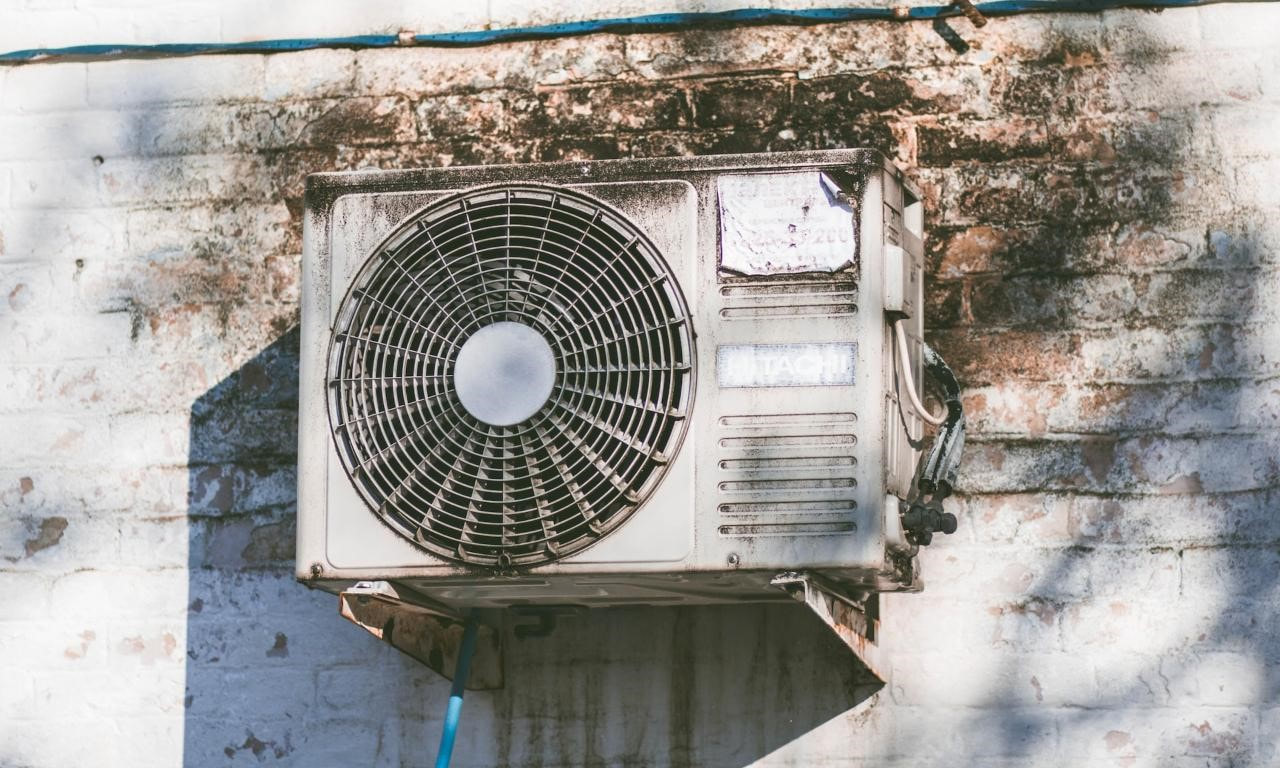
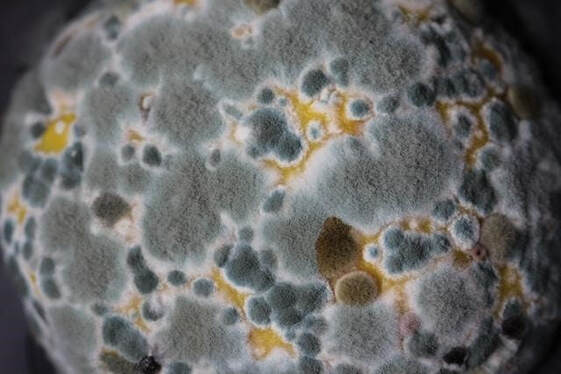
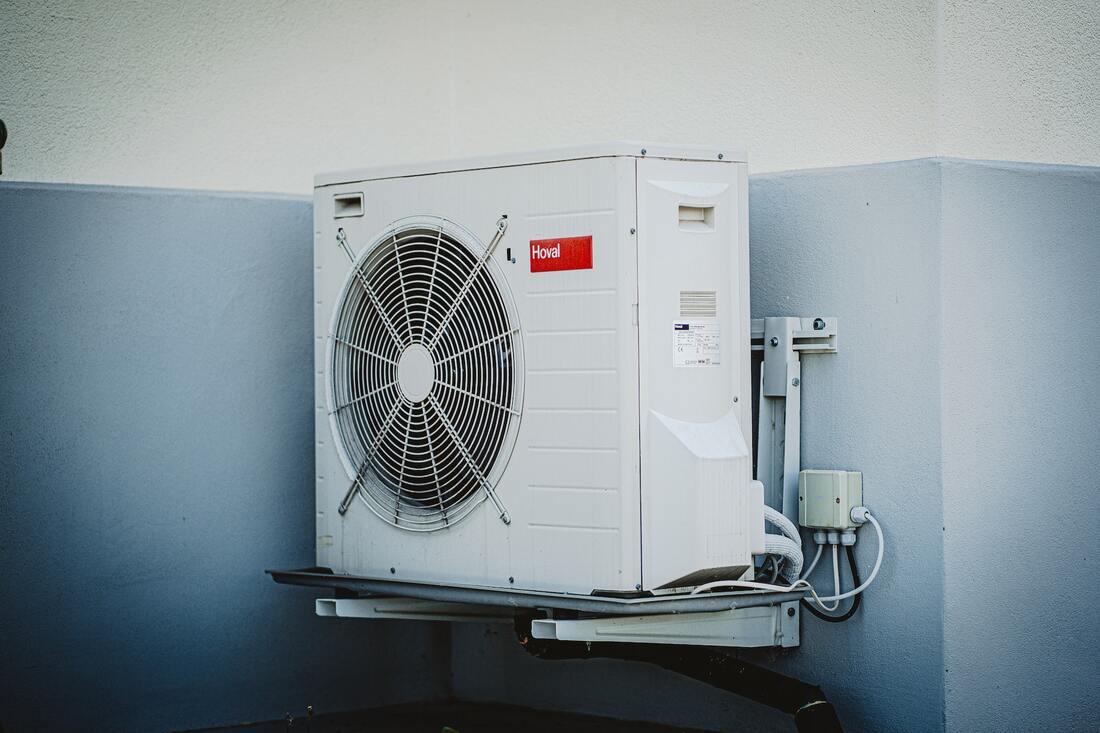
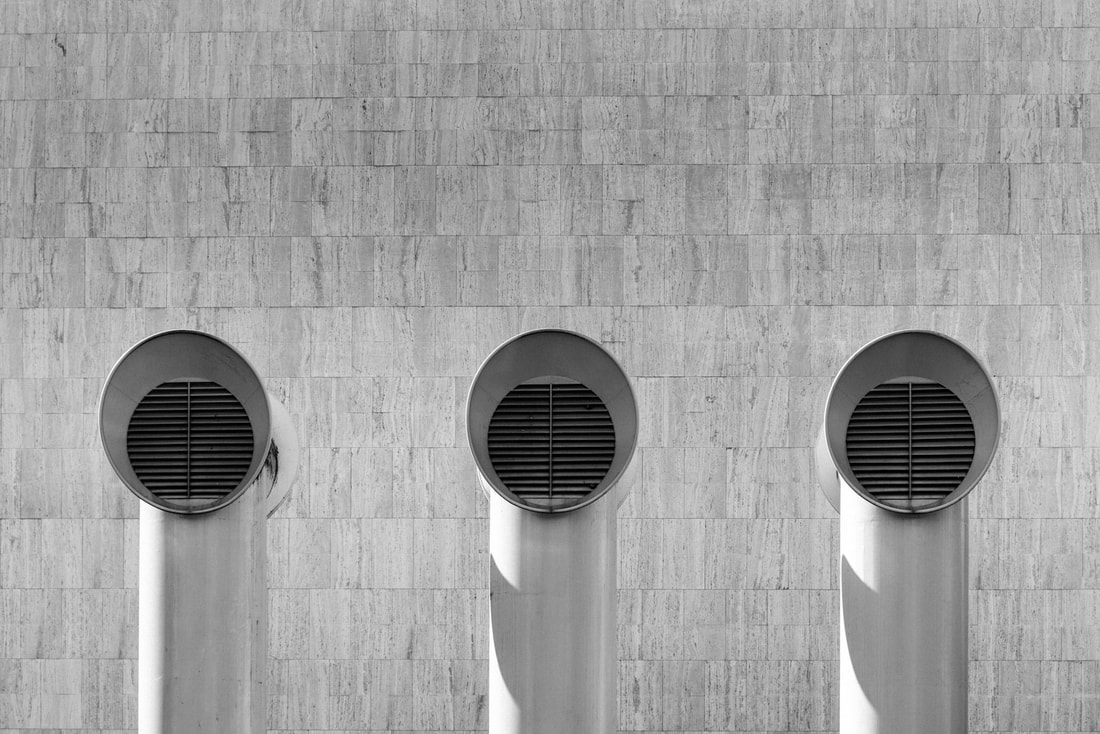
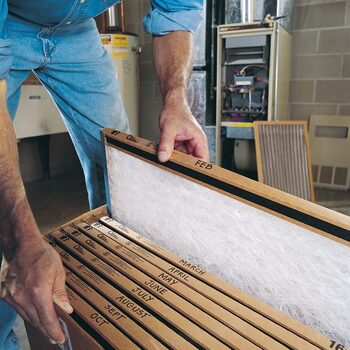
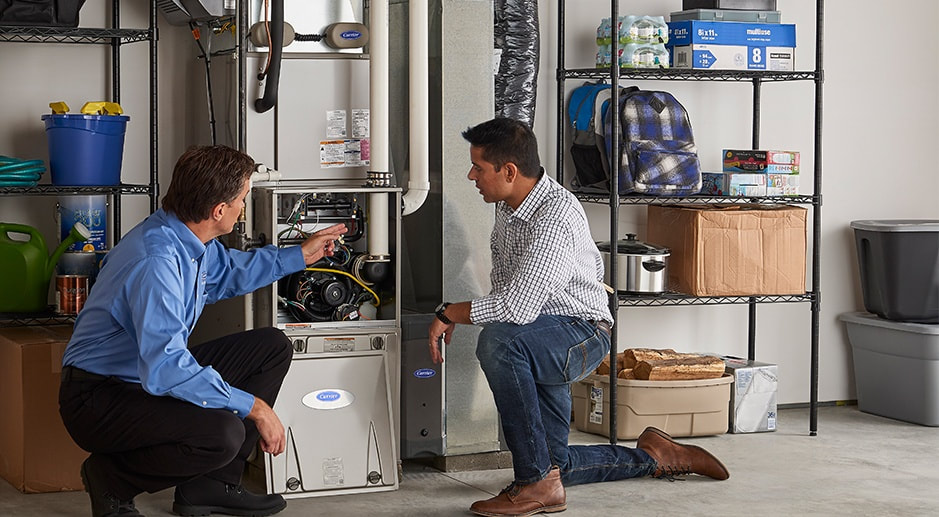
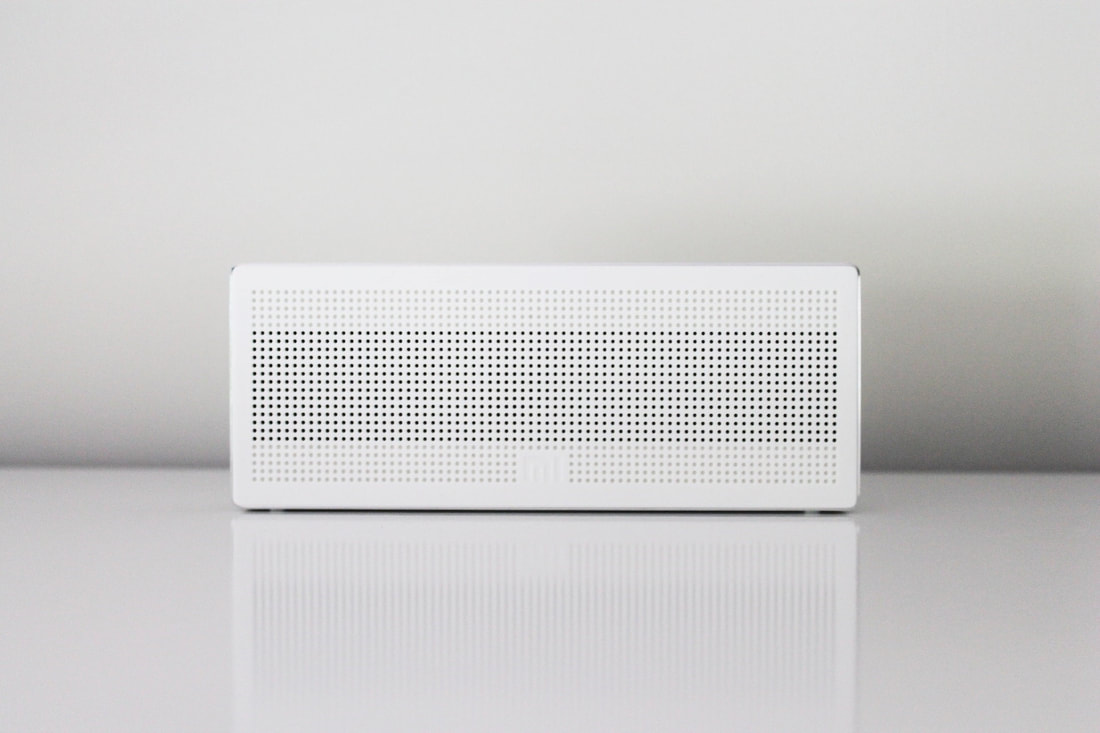

 RSS Feed
RSS Feed